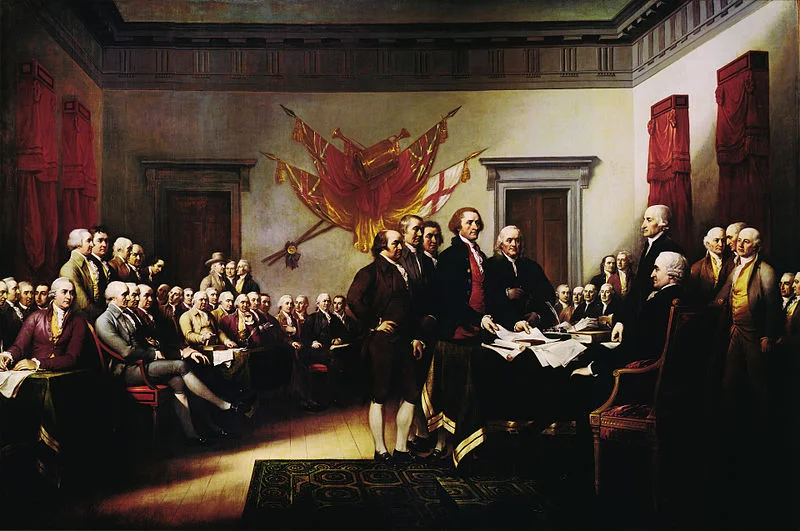Larry Krieger is concerned with the new AP US History (APUSH) curriculum--in effect fall 2014, as put forth in the College Board’s new framework.
His first concern, which he opined in a recent Orange County Register column, is that the APUSH framework does not align with the California History Social Science (CHSS) framework (nor frameworks from other states such as Texas and Alabama), meaning, in his opinion, the College Board is undermining how US History will be taught.
Mr. Krieger, now retired, whose career spanned more than 35 years, taught AP American History, World History, European History, American Government, and in 2004 and 2005, and was recognized by the College Board as one of the nation’s foremost AP teachers, was outraged.
Specifically, Krieger taught that Manifest Destiny, “…spread democracy and new technology across the continent.” The APUSH framework defines it as, “…built on a belief of white racial superiority, and a sense of American cultural superiority” (p. 54). Equally disconcerting is the framework’s summation of World War II: it pulled the US out of the depression, fostered grave human rights abuses by the internment of Japanese Americans and the dropping of atomic bombs, and lists factors that helped the allies defeat the axis powers. (p. 70) No mention of the Battle of the Bulge or Iwo Jima is anywhere to be seen.
The new APUSH framework can be found on the AP US History site.
How does the APUSH framework match up with that of the CHSS, which can be found here. First off, the CHSS sets in place ‘best practices’ for US History students in grades 5, 8, and 11 ; AP US History is focused on grade 11. Consequently, the course is not intended for beginners: most AP students should already have a familiarity with basic US historical facts: the Constitution, the Declaration of Independence, the Civil War and the key personalities such as Franklin, Washington, and Martin Luther King Jr.
Nonetheless, there are 17 ‘distinguishing characteristics’ listed in the CHSS which include ‘history as a story well told’ (something Mr. Krieger cites often in his critique of the AP Framework), ‘enriching the study of history with the use of literature’ of and about the period (Krieger notes the AP framework ‘does not recommend a single work of literature’), ‘studying major historical events in depth as opposed to superficial skimming’, ‘incorporates a multicultural perspective’ (something Mr, Krieger doesn’t even mention), and ‘frequent study and discussion of the US Constitution and the Bill of Rights’.
Although Krieger constantly refers to the APUSH framework’s ‘anonymous authors,’ they’re listed on page v, with the director Lawrence Charap listed front and center. Charap, in a column for the National Council of History Education, notes that the goal of the redesign was to align APUSH with college survey courses, and to help students develop ‘historical thinking skills’ and ‘chronological thinking to create rigorous arguments.’
The acid test on whether the new AP curriculum was revisionist and a ‘curriculum coup’ rests on a review of the final. The College Board accommodated by releasing a sample exam. After reviewing some of the 55 multiple choice questions, and two of the four new short answer questions, Krieger arrived at the conclusion that the test had political overtones that were supporting a ‘progressive’ agenda.
In his efforts to combat historical injustice, Krieger has allied himself with Jane Robbins, a conservative attorney and educational activist, who is working against the adoption of Daniel Coleman’s Common Core. Krieger’s wish is to define, through its history, that the US is the biblical ‘…city upon the Hill,’ and that the theme of ‘American Exceptionalism,’ which runs through Alex de Tocqueville, the Dulles brothers, and was even murmured recently by John Kerry, is alive and well.
To Winston Churchill, American Exceptionalism means: "You can always count on Americans to do the right thing - after they've tried everything else," and history, "… will be kind to me for I intend to write it."
History, by committee, usually loses its luster. Confirmation can be found in reading any framework.

